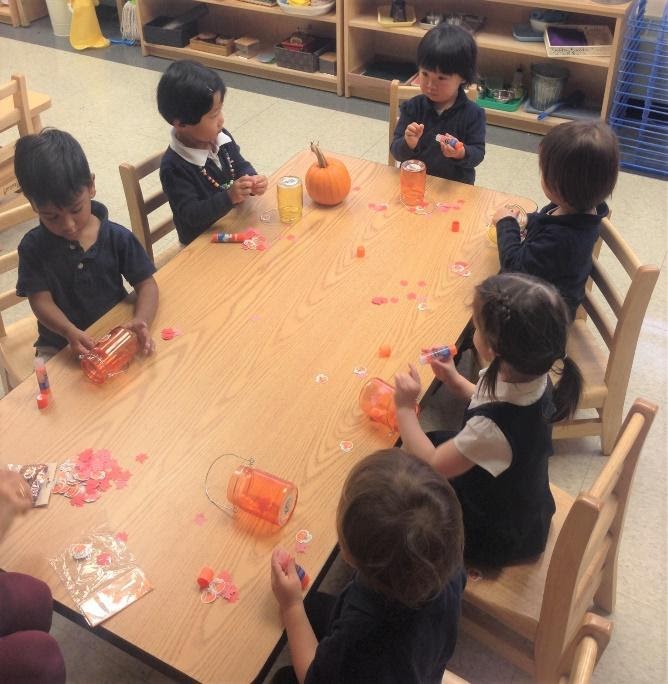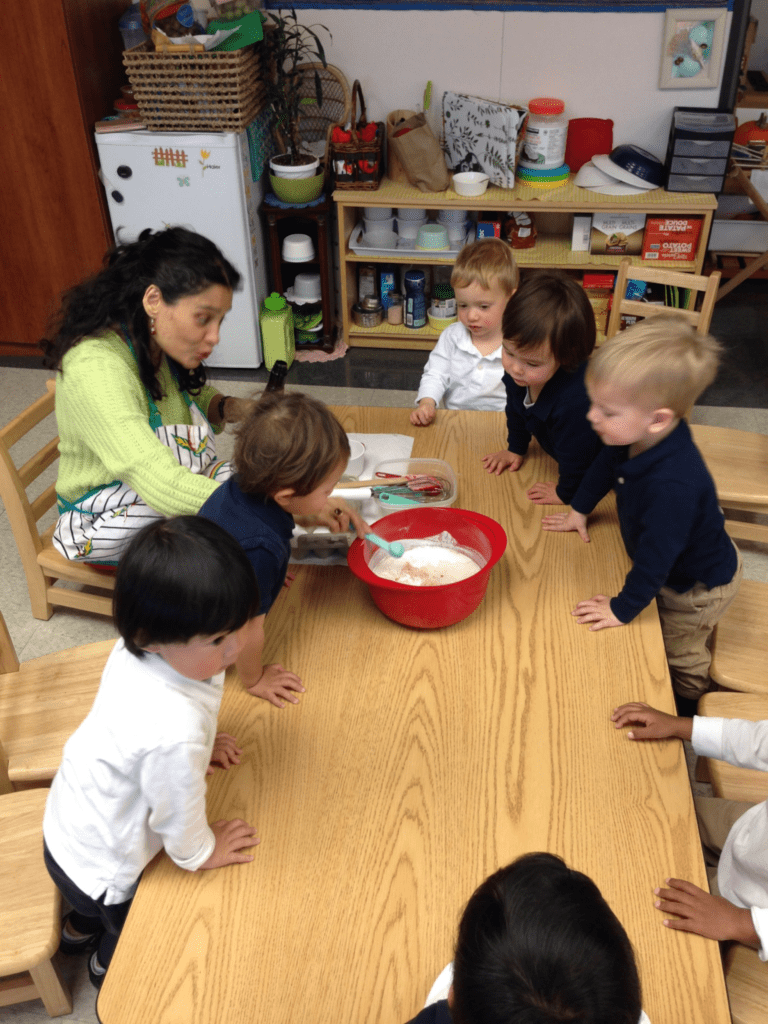“History should not be taught as a collection of dates and places. But rather be approached to arouse gratitude and appreciation. This gratitude should be aroused first to the law and order of the universe and the preparation of the environment into which human beings came.”
Maria Montessori
Calendar of Events
The above calendar information is from a “Google Calendar” and can be added to any Google Account.
Practicing Gratitude
Practicing gratitude in a time of uncertainty leads to many positive outcomes, such as more connectivity and a growing appreciation for what is good in life.
https://greatergood.berkeley.edu/article/item/what_are_we_grateful_for_during_covid_19
https://greatergood.berkeley.edu/article/item/why_gratitude_is_good
Ways to practice gratitude:
- Gratitude jar (allocate a decorated jar or box as the ‘gratitude jar” and develop a practice of adding notes or pictures of gratitude and reading them regularly as a family)
- Write thoughts of gratitude in a gratitude journal
- Perform acts of gratitude (have your children help a neighbour or write a ‘thank you’ note)
- Expressions of gratitude (using kind words to show appreciation for someone or something)
MMEC Dress Code
Please be reminded that children must adhere to the MMEC Dress Code for toddlers to upper elementary and the Erdkinder Dress Code for grades 7-9. These Dress Codes outline what MMEC has deemed as acceptable clothing to wear to school while still giving families autonomy with where to purchase clothing. The dress code cultivates a sense of self-respect, self-care and reflects the simplicity of a Montessori environment.
Please ensure that your child’s clothing is clean, well-fitting and in good repair. Thank you for helping us create a culture of respect for ourselves, others and our environment. Dress code guidelines can be found on pages 23-25 in our Family Handbook or on the MMEC website. The Erdkinder Dress Code can be found in our Erdkinder Handbook Addendum on the Family Website. Please note that hoodies, sweatpants, and joggers are not part of the MMEC dress code.
Virtual Parent Information Sessions
In preparation for 2022/2023 enrollment, MMEC will host virtual information sessions starting November 18 for prospective families. Should you know anyone interested in learning more about MMEC, please have them contact us at [email protected].
Annual Parent Survey, November 2-8, 2021
On November 2, 2021, parents are invited to participate in the MMEC Annual Survey. Please take the time to participate, as your feedback is valuable to us and informs our plans moving forward.
Parent Engagement Session, November 10, 2021
MMEC parents are invited to join the MMEC Board of Directors on November 10th at 7 pm for an informational session on MMEC’s growth since its inception and plans moving forward. This will be followed by time for comments. More information will be emailed closer to the date.
Usborne Virtual Book Fair – November 22 – 26, 2021
This year MMEC will once again be hosting a Virtual Book Fair with Usborne Books. During the week of November 22 – 26, we will send out a link to the Usborne website for you to check out at your convenience. A wide range of entertaining and educational books can be ordered online during the event and will be delivered for pick up directly to your child’s class (or to the school office if you prefer). Your purchases will earn 25% of the retail sales in free books for MMEC’s library and classrooms. More details will come closer to the event.
Parent/Guide Conferences, Both Campuses, November 25 and 26
November 25, 4 to 8 pm, and November 26, 9 am-1 pm, have been reserved for conferences. Toddler and Casa will host parent/guide conferences, and elementary classes will host student-led conferences.
To ensure the safety of our community, only parents who are fully vaccinated will attend in-school conferences. Proof of vaccination is required upon entering the school. Parents who wish not to disclose/share their vaccine status, or prefer a virtual conference, will attend conferences virtually in the format of parent/guide conferences only. Please look out for the conference email closer to the date. We thank you in advance for your cooperation and understanding.
Sleep – A Building Block of Health
Dr. Renee Farrell
Sleep is a fundamental building block to physical and mental health. Yet, sleep disorders are common in children and adolescents. 15-25% of children and adolescents have difficulties with sleep initiation and maintenance.
Fatigue, inattention, irritability, lack of energy, and anxiety are ways that children and adolescents show that they are having difficulties with sleep. Other signs that a child is having difficulty with sleep include taking more than 30 minutes to fall asleep, requiring external cues to fall asleep (such as the presence of a caregiver), having challenges going to sleep (such as delaying or refusing to go to sleep) and waking up multiple times each evening.
Ways to help your child improve their sleep are:
- ENSURE THEY ARE GETTING ENOUGH HOURS OF SLEEP
- Preschoolers (2-5 year olds) need 10-13 hours of night sleep
- School-Age Children (6-13 year olds) need 9-11 hours of night sleep
- BEDTIME AND WAKE UP TIME SHOULD BE THE SAME EVERY DAY
- Adolescents especially think they can catch up on sleep on the weekends
- Catch up sleep often impacts the sleep the following night and can make sleep a cyclic problem
- BEDROOMS SHOULD ONLY BE FOR SLEEP
- Avoid T.V. watching, cell phone use and video games in the bedroom
- Avoid T.V. watching, cell phone use and video games in the bedroom
- HAVE A BEDTIME ROUTINE
- This can be as simple as brushing your child’s teeth, putting on pyjamas then reading a set number of books
- As part of your bedtime routine, try to avoid screens 1 hour before bedtime
- BEDTIME CHECK-INS SHOULD BE SHORT AND SWEET
- If your child is having trouble falling asleep, entering the room to let them know you are there and that they are safe can be helpful as long as this is brief and done in a low stimulating way
If you have questions about how your child is sleeping, reach out to your family doctor or pediatrician.
References:
Children’s Hospital of Cincinnati Sleep Hygiene in Children Hand out
Early Literacy Skills
Early language plays an important part in developing reading and writing skills in childhood. Parents can help their children learn language skills from birth.
Language rapidly expands in the first two years of life! At 4 months of age, infants can distinguish their native language from similar-sounding languages. At 6 months, infants will start to connect nouns with objects in their environment, and from 12-24 months, an infant’s understanding of language rapidly increases. Around their second birthday, they will start to have two-word sentences.
As parents, there are many activities we can do to help promote language and, thereby, early literacy skills. Reading to your child as early as infancy not only helps with language learning but also promotes cognitive and social development. Infants observe your expression and intonation while being read to!
Singing is another way that infants and young children can develop early language skills. To help you learn the words to common children’s songs, you can purchase or borrow the book version from the library. For example, Raffi has a collection of books that include Down by the Bay and Baby Beluga. Another great way to learn songs is to attend communal musical activities such as storytime at the library. These group activities encourage attentive listening and enhance memory.
Lastly, storytelling is another way to help children develop language skills as they learn to label items in their environment. By 24-30 months, children will have a basic understanding of storytelling and will often tell a short story with a central character (usually themselves). Even if your child can’t tell a story, they will enjoy hearing stories about shared experiences. These stories will help them process the event, develop memory skills, develop emotional regulation skills and potentially learn about their culture.
Technology can help us in so many ways, and often people wonder whether e-books can replace hard copy books for children. E-books were not designed for toddlers and do not provide the same experience of shared reading as children typically stare at the screen rather than looking at the parent. E-books do not allow children to interact with the book as easily as when they go to touch the e-book, they may flip the page instead of touching the picture they were identifying. The simpler the technology, the better for brain development!
Canadian Pediatric Society: Read, speak, sing: Promoting early literacy in the health care setting.
Toddler 1 News: Fall Celebration
Mrs. Zehra
We believe that every season should be celebrated as all of them have their own beauty and uniqueness. Our Toddlers participated in carving a pumpkin and studying the various parts. The tasting of the seeds was everyone’s favourite. We also had the opportunity to look at Michelle’s pumpkin, which was a result of last school year’s Earth Day project. Michelle and her parents cared for the plant and harvested three beautiful pumpkins! It resonates well with our Montessori philosophy of respecting and taking care of our environment, which can include planting and raising environmentally responsible children.


